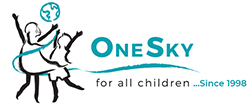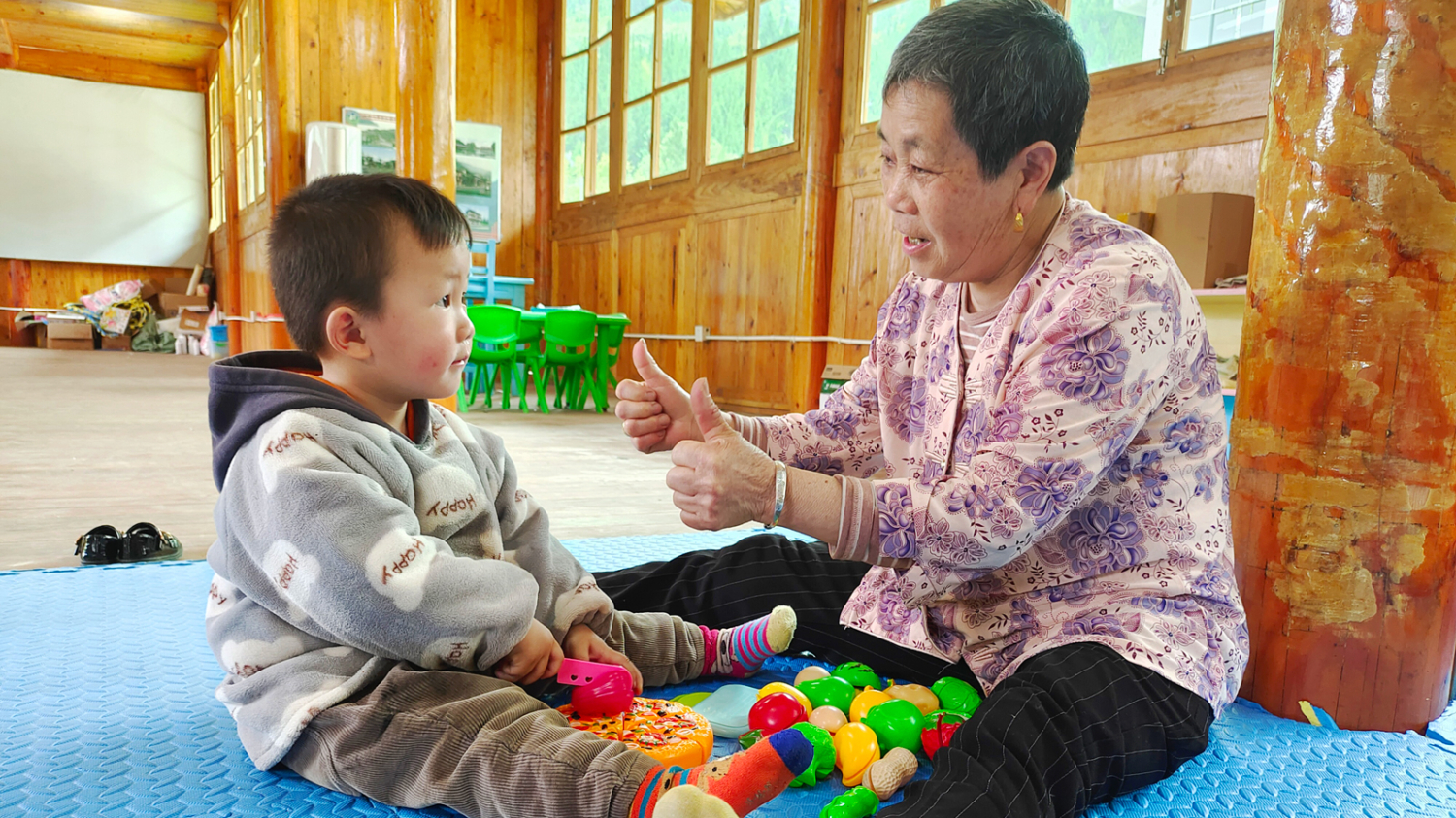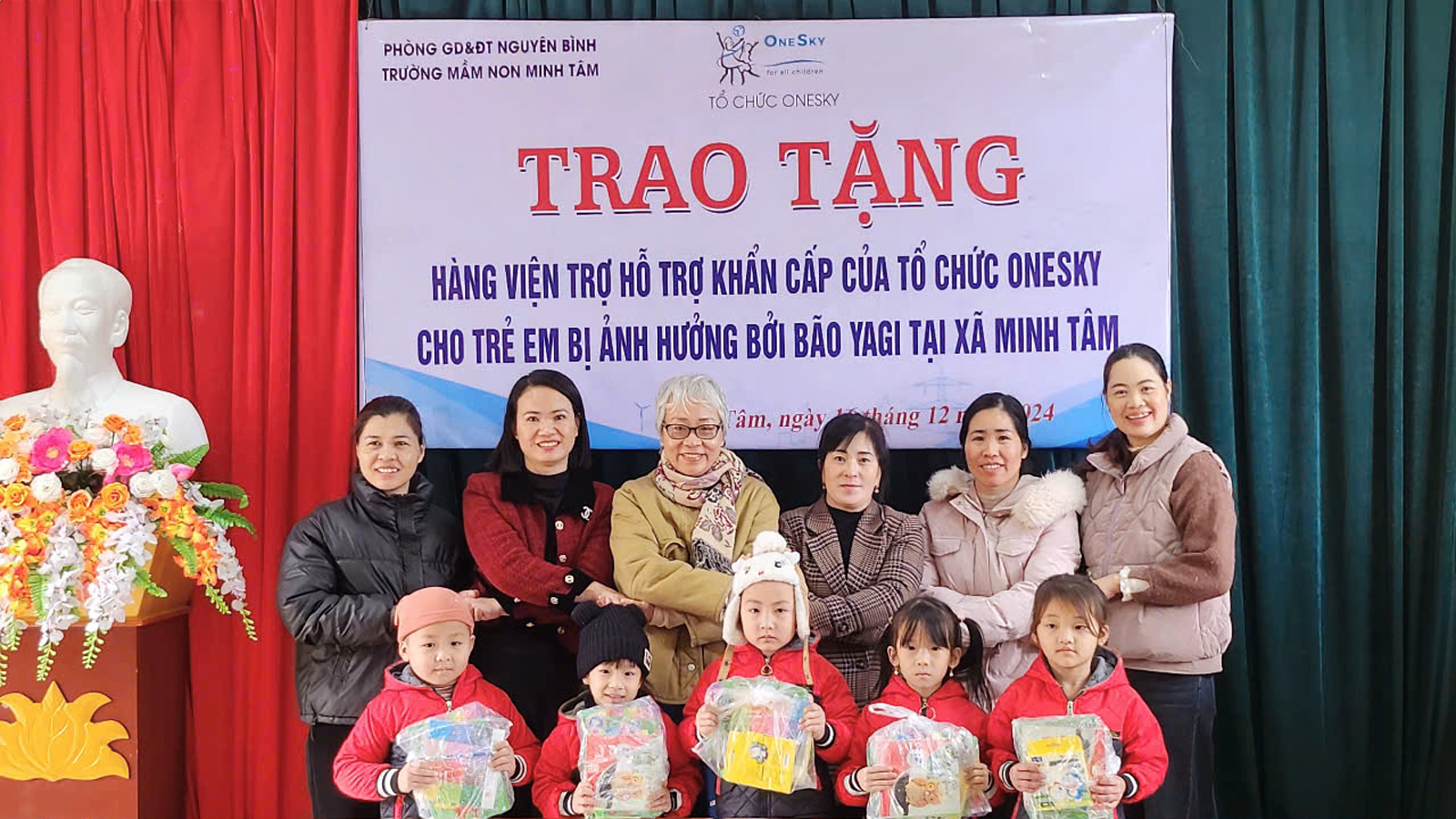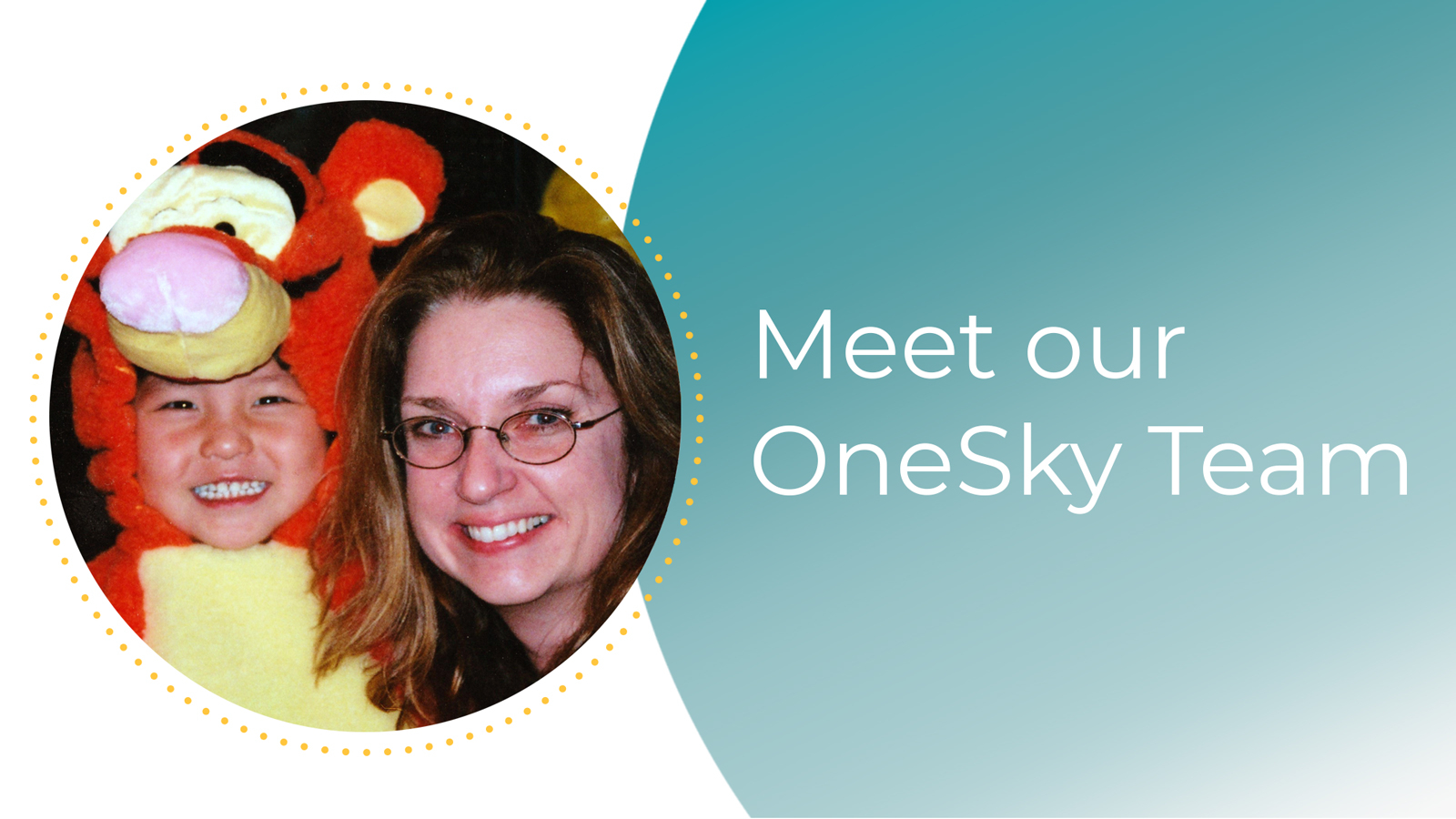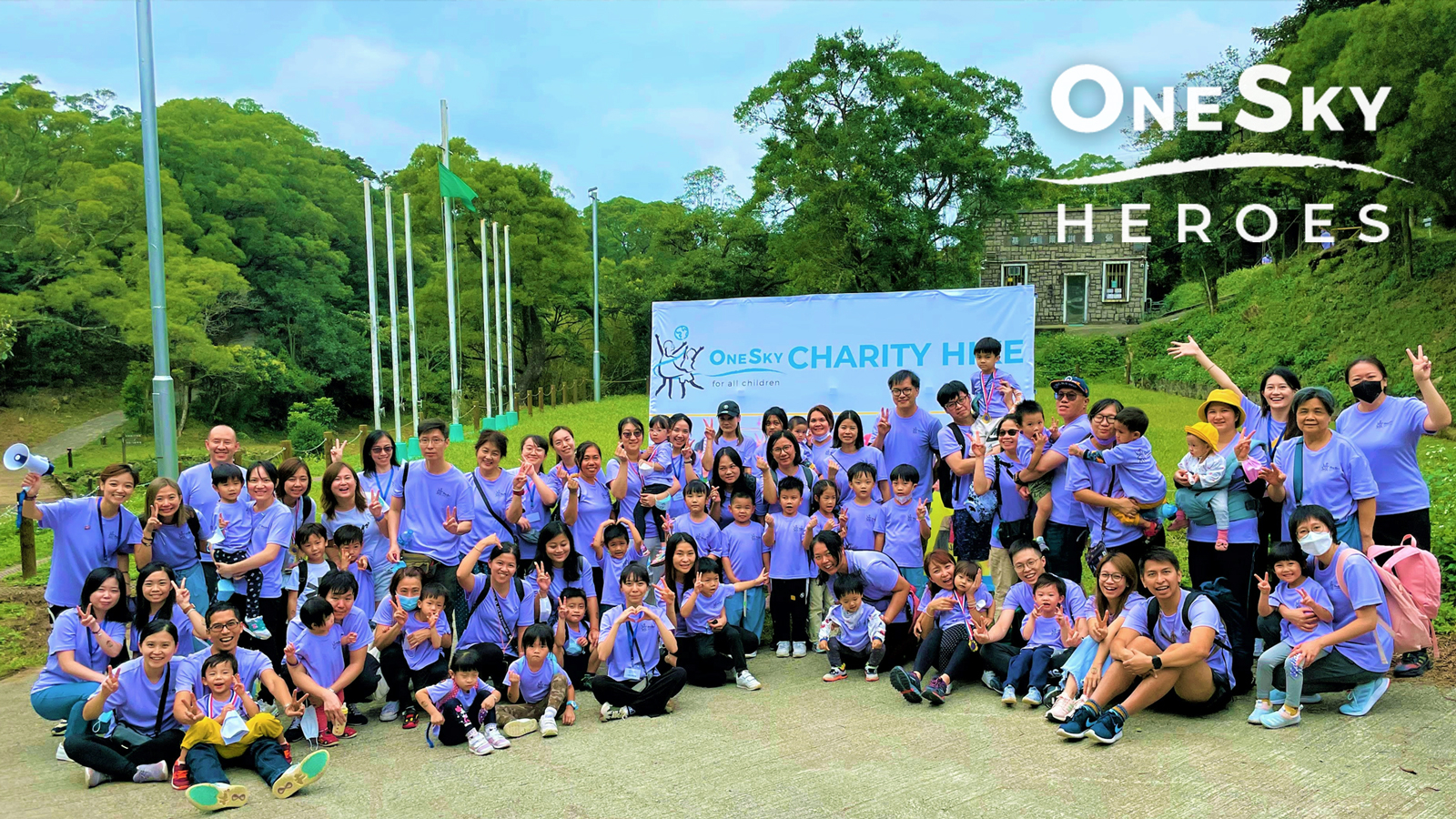Help for Haohao: A Safe Place to Play in the Village
Haohao is a 3-year-old boy living in a rural village. His grandmother looks after him while Haohao’s parents work outside of the village and rarely come back home. She found it tough to juggle caregiving, housework, and farm work in her day-to-day life. Having never received much education, she felt she couldn’t teach him well. Most of the time, she walked with Haohao on the roads and alleyways in the village, or just watched him play by himself, only making sure he wouldn’t fall or injure himself, but otherwise unengaged.
“Haohao can’t talk much and is incredibly mischievous. He likes to touch everything and it’s hard to control his behavior,” grandma complained. Whenever she couldn’t manage him, she would raise her voice which made Haohao cry endlessly. Word had spread to every neighbor that Haohao was a “mischievous boy”…
In 2021, OneSky established a center in Haohao’s village, in partnership with the local government. As the first of its kind, Haohao’s grandma was exceedingly happy because she could take her grandson to the center almost every day, rather than roam aimlessly around the village.
“Our children finally have a place to play,” she said, never expecting her grandson to participate in so many interesting games, designed by the OneSky family mentors.
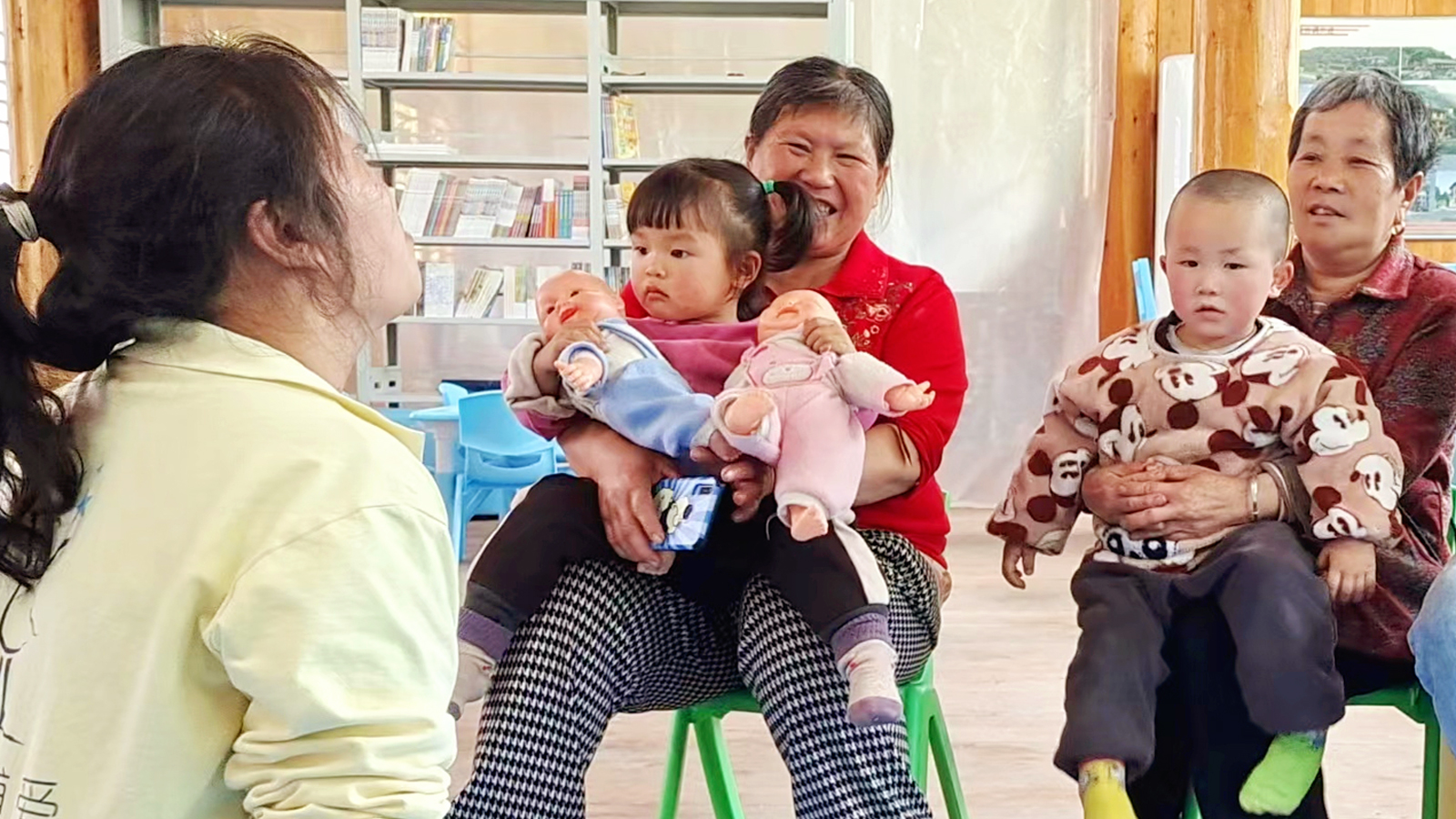
On the first day of visiting the center, Haohao was so excited to see all the toys. He began to scout around the room, picking up toys and curiously inspecting them. As soon as he sat down to play with one toy, he jumped up and to the toy cabinet to take another toy, which he also dropped to the floor. Having no clue as to what to do, grandma merely sat aside silently, watching him take and drop every toy on the floor.
Seeing this, the family mentor Xueli sat down next to him and asked him kindly, “Haohao, are you happy to see so many toys?” Haohao nodded, all the while running to the big bouncy ball and pushing it toward Xueli. Observing his behavior, she responded: “Do you want to play with the ball?” Haohao nodded again and climbed onto the ball, pressing it to bounce him up and down carefully.
On the top of the ball, little Haohao was getting nervous and holding on tightly. “It’s OK. Don’t be afraid. I am here with you,” Xueli reassured him, and gradually he relaxed. Soon he was enjoying the ride very much, playing happily, giggling, and looking at his teacher with trust.
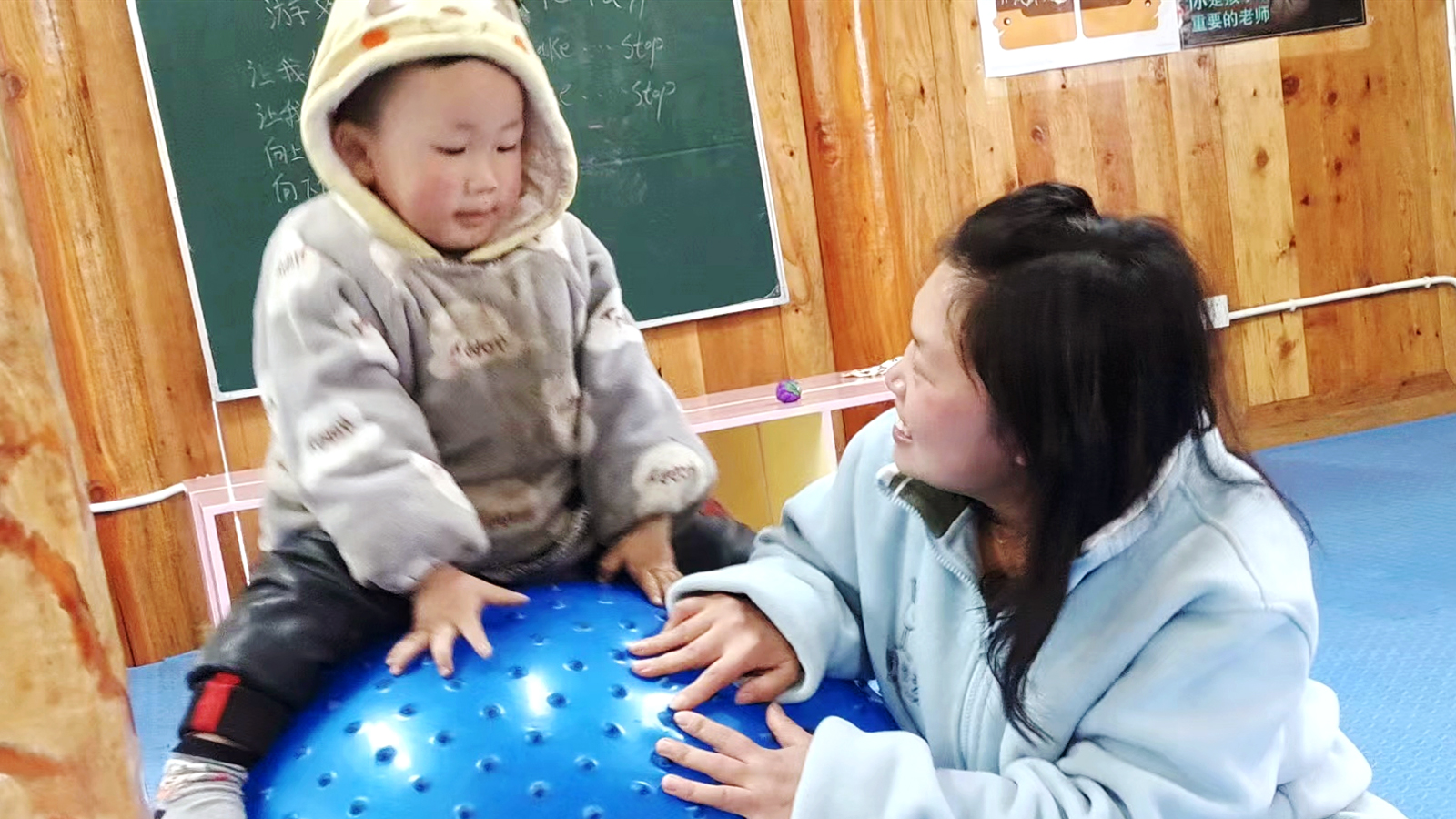
Xueli was aware that Haohao would need time to adapt to this new and exciting environment. Soon, he began to explore the center, which was equipped with activity materials for young children, including books, educational toys, painting and handiwork materials, doll houses, sporting goods, and more. Two family mentors stood by to provide timely support to the children and their caregivers.
A week on, Haohao had already become accustomed to the center and the teachers. Xueli prepared all sorts of different activities for the children to engage in —rhythmic dance, doodling, handiwork, storytelling, and so on. Haohao was excited to join every activity. But Xueli noticed that although he played with the other children in those activities, after a short while, he’d run to another area to play by himself. He didn’t seem to want to fit in with others.
Using her training in responsive care, Xueli sat by his side to guide his attention. She created opportunities for him to play with his companions and, upon seeing any small improvement, she would encourage him by giving him a big hug. When Haohao was praised, he seemed very happy.
During breaks, Xueli spoke to Haohao’s grandma who would sit off to the side. She explained that playing is also learning, and regularly playing games with Haohao would make him smarter and support his development.
Haohao’s grandma was able to see how much Haohao had changed when she watched Xueli and Haohao play together. Hearing Xueli’s words, she started to mimic her and immerse herself in the games with Haohao. No longer standing on the side to just watch, she helped her grandson play with the building blocks and cut fruit. Furthermore, she started to imitate Xueli to give Haohao a thumbs-up when he behaved well. Since then, Haohao has become accustomed to playing with his grandma and is less disruptive when she is around.
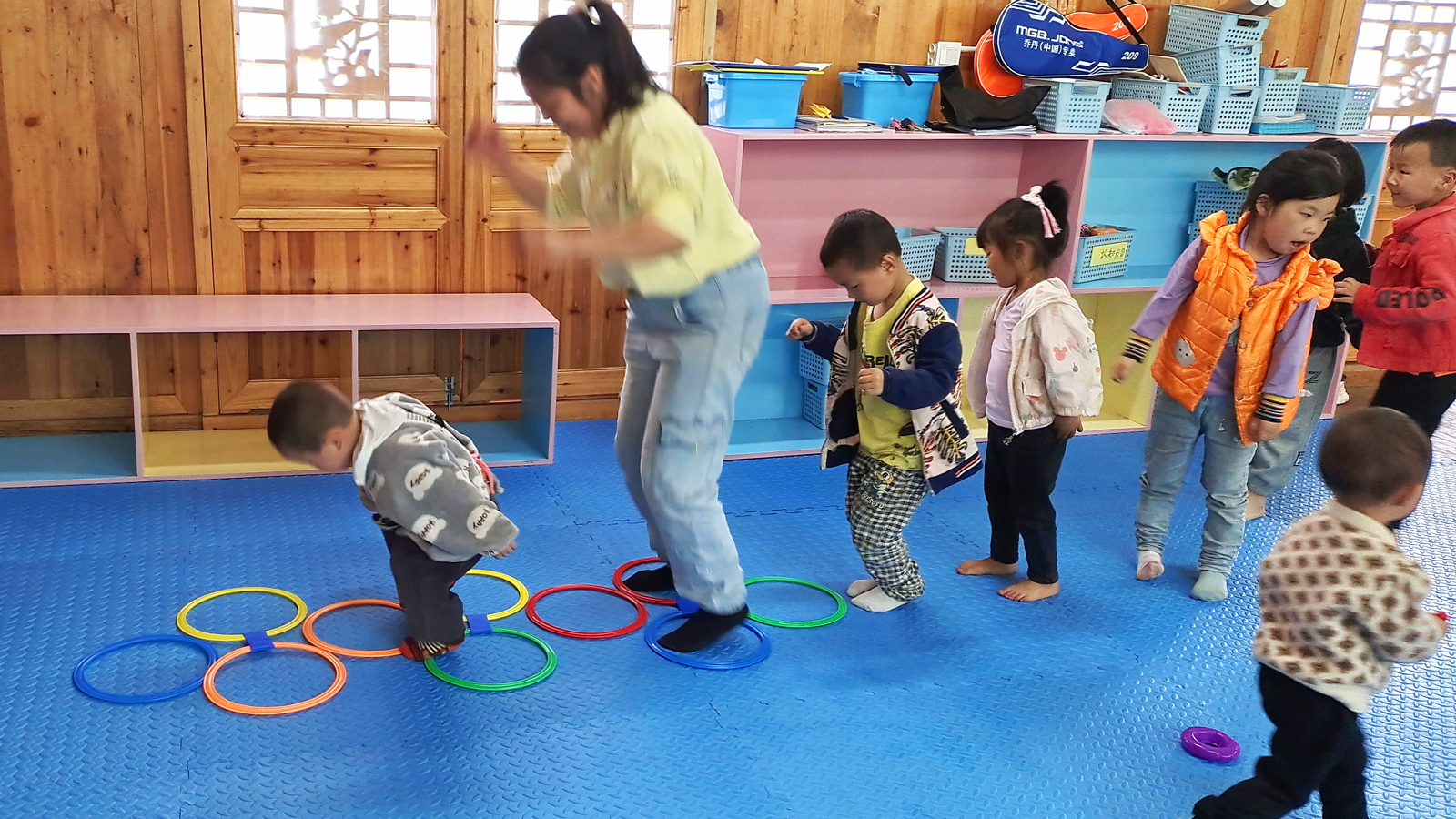
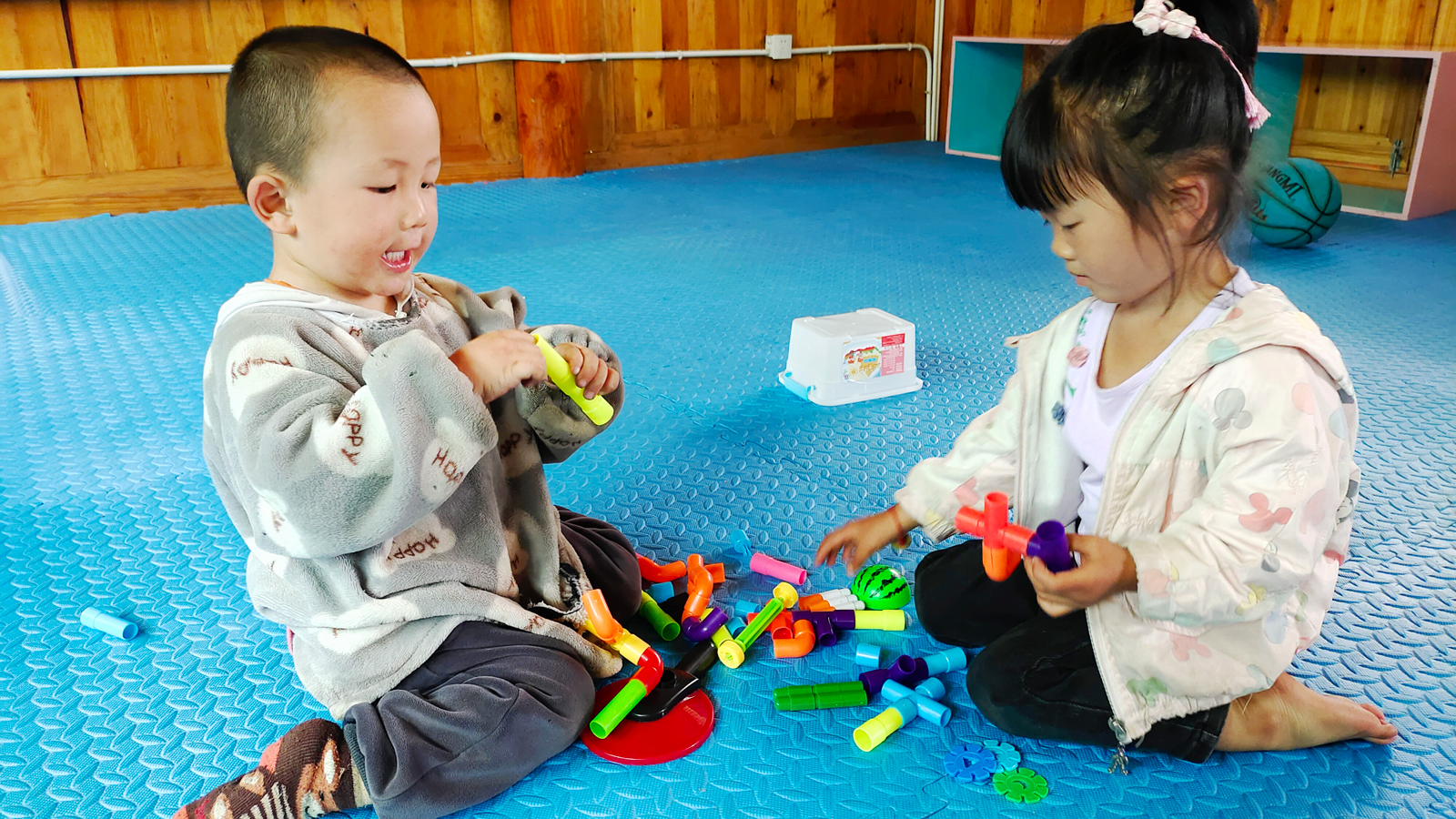
Every week, Haohao’s grandma arrived punctually at the parents’ training, where Xueli taught her and others how to raise a securely attached child. They learned about a child’s developing brain, how to play and respond appropriately with children, a child’s emotions, and more.
Grandma admitted that she’d never heard of any of this information before and that, in the beginning, she didn’t understand most of it. But she came to every single class and listened carefully. Now she knows that when children are mischievous, it’s not always their fault, which also presents an opportunity to learn if a child’s developmental needs are met or not.
Teacher Xueli said attending these classes had changed Haohao’s grandma. She no longer yells or scolds him and she smiles more, talks more, and spends a lot more time playing with him.
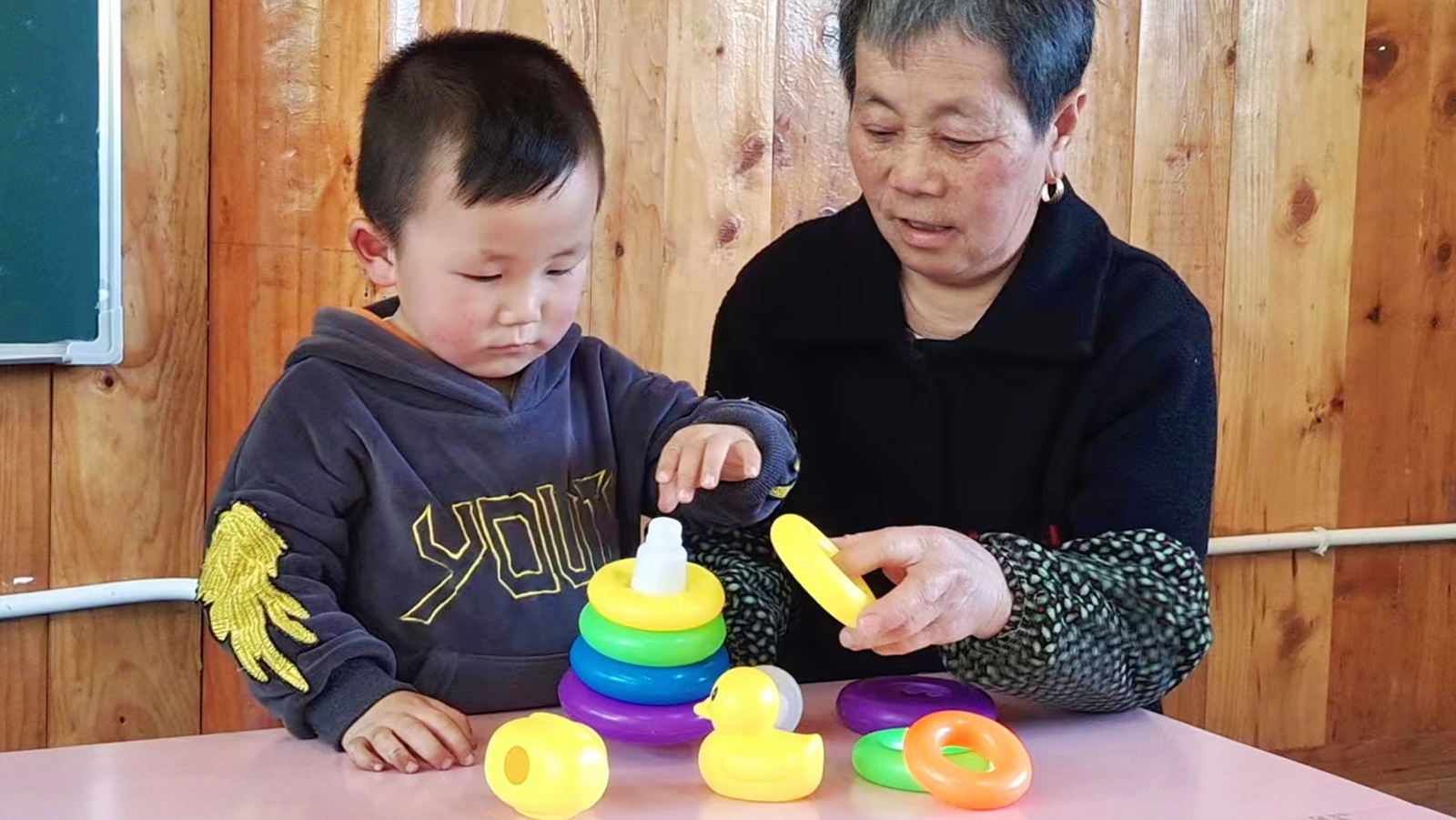
A short year later, Haohao is now able to sit calmly and play with his grandma for more than 10 minutes. His ability to concentrate has improved immensely. He also participates in activities like dancing with other children and doodling. His language skills are much improved too. Now, he asks questions instead of just nodding or shaking his head and he can use simple words to communicate.
“We have seen huge changes within not only Haohao but also his grandma. Haohao has become calmer and more willing to socialize with others, while she has become gentler to her grandson and loves to laugh more!” Xueli shared proudly.
Training adult caregivers on how to respond to the needs of young children can be life-changing. OneSky is training caregivers to ensure all vulnerable young children receive the care they need to develop and grow during their crucial first years. The OneSky village model has taught many rural families how to love and care for their children. And we are delighted the government has recognized the strength of our work and is looking to support and expand it going forward.
